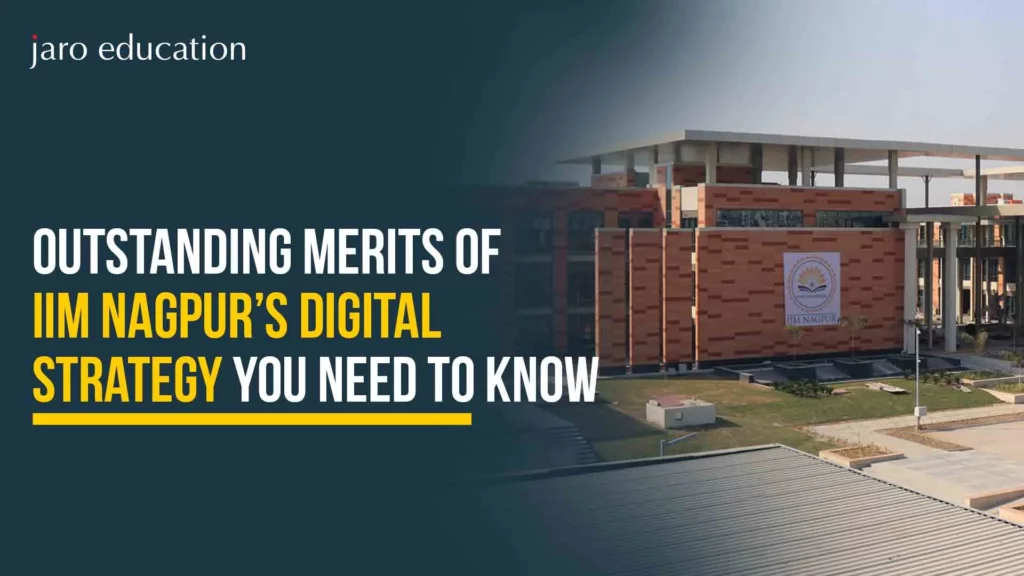The Ultimate Guide to Online MBA: Everything You Need to Know in 2025
Table of Contents

What if you could advance your career, gain leadership skills, and earn a prestigious degree—all without leaving your job or relocating? That’s the promise of an online MBA. This postgraduate degree has become a game-changer for professionals seeking to level up in their careers while balancing other commitments. Whether you’re managing a demanding job, raising a family, or simply prefer the flexibility of studying from home, an online MBA offers a solution tailored to modern needs.
In today’s ever-evolving professional landscape, the demand for advanced qualifications is at an all-time high. Companies are looking for leaders who can navigate complex challenges, drive innovation, and steer organizations toward success. Flexible online MBA programs equip you with these skills, combining rigorous academic training with the convenience of digital platforms. It allows you to master critical areas like finance, marketing, operations, and leadership—all while managing your personal and professional responsibilities.
But why choose an online MBA over a traditional one? The answer lies in its adaptability. Online MBAs cater to a wide range of learners, from early-career professionals to seasoned executives. They enable you to learn at your own pace, often at a lower cost than on-campus programs, and connect with a global network of peers and faculty.
This guide is your ultimate resource for navigating the world of online MBAs. We’ll explore what an online MBA is, how it compares to traditional programs, and the types of courses available to suit different needs. Whether you’re aiming to climb the corporate ladder, pivot to a new industry, or launch your own business, this guide will help you make an informed decision and maximize your investment in your education. Let’s dive in.
1. What is an Online MBA?
-
- Comprehensive Curriculum: Topics like financial analysis, organizational behavior, and strategic management form the foundation.
- Interactive Learning: Platforms often include live discussions, peer feedback, and instructor engagement.
- Global Networking Opportunities: Diverse cohorts provide exposure to international perspectives.
- Flexibility: Self-paced schedules allow students to balance studies with other commitments.
Comparison with Traditional MBAs
While both traditional and online MBAs share the same academic rigor, they differ in key aspects:
| Aspect | Traditional MBA | Online MBA |
|---|---|---|
| Location | Campus-based | Accessible from anywhere |
| Flexibility | Fixed schedules | Customizable schedules |
| Cost | Higher, includes housing and travel expenses | Lower, with minimal additional costs |
| Networking | In-person interactions | Virtual meetups with global peers |
| Learning Tools | Physical classrooms | Digital platforms and tools |
Types of Online MBA Programs
Online MBA programs are not one-size-fits-all. They come in various formats designed to meet the diverse needs of professionals. Here’s a closer look:
1. Full-Time Online MBAs
These immersive programs are ideal for those who can dedicate significant time to their studies. Often completed within two years, full-time online MBAs provide an intensive learning experience comparable to traditional programs.
- Best For: Recent graduates or individuals with flexible schedules.
- Example Program: The University of Illinois’ iMBA, known to be one of the affordable online MBA programs and hold a strong academic reputation.
2. Part-Time Online MBAs
Part-time programs spread the coursework over two to five years, allowing students to balance their education with work or personal commitments. These online MBAs are among the most popular formats for working professionals.
- Best For: Mid-career professionals seeking career advancement without sacrificing their jobs.
- Example Program: Indiana University’s Kelley Direct MBA, which offers flexibility and a robust support system for working students.
3. Executive Online MBAs (EMBAs)
Tailored for senior executives and professionals with extensive work experience, EMBAs focus on leadership, high-level strategy, and organizational transformation. These programs often involve shorter durations but demand significant peer interaction and group work.
- Best For: Senior managers and C-suite aspirants.
- Example Program: MIT Sloan’s Executive MBA, which emphasizes innovation and strategic leadership.
4. Hybrid MBAs
Hybrid programs combine the best of both worlds, blending online coursework with occasional in-person sessions. These on-campus components typically include networking events, intensive workshops, and live classes.
- Best For: Those who value face-to-face interactions but need flexibility for the majority of their studies.
- Example Program: Duke University’s Cross Continent MBA, which features global residencies and collaborative projects.
Choosing the Right Online MBA Program
-
- Accreditation: Ensure the program is accredited by recognized bodies like AACSB, EQUIS, or AMBA.
- Specializations: Look for programs that align with your career goals, whether in finance, entrepreneurship, or technology.
- Faculty: Research the credentials and industry experience of instructors.
- Alumni Network: Strong networks can open doors to job opportunities and mentorship.
- Technology: Ensure the program uses reliable platforms and tools for seamless learning.
2. Why Choose an Online MBA?
The right qualifications can transform your career, opening doors to leadership roles and new opportunities. An online MBA offers a unique combination of advanced business education and the convenience of learning on your own terms. For professionals who want to enhance their skills without disrupting their work or personal commitments, this option provides unmatched flexibility, accessibility, and affordability. Let’s explore the reasons why an online MBA might be the perfect fit for your career aspirations.
Flexibility: Managing Work, Studies, and Personal Life
One of the biggest draws of an online MBA is its unparalleled flexibility. Traditional MBA programs often require students to commit to rigid schedules and sometimes even take a career break. In contrast, online MBAs are designed to accommodate the busy lives of working professionals. Whether you’re juggling a demanding job, raising a family, or pursuing personal interests, online programs allow you to structure your learning around your unique schedule.
For instance, many programs offer asynchronous courses, meaning you can access lectures and materials at any time that suits you. This flexibility empowers students to learn at their own pace without compromising their work or personal responsibilities. Live sessions are typically scheduled with consideration of different time zones, ensuring inclusivity for global participants.
Take the example of Sarah, a marketing manager who wanted to enhance her leadership skills without pausing her career. She enrolled in a part-time online MBA and found the program’s flexible nature invaluable. “I could study during my lunch breaks or after putting my kids to bed. It allowed me to keep advancing in my career while learning,” she shared.
Accessibility: Benefits of Studying from Anywhere
Online MBA programs are often more affordable than their traditional counterparts, not just in tuition fees but also in associated costs. With no need to relocate or commute, students save significantly on housing, travel, and daily expenses. Moreover, many cost-effective online MBA programs offer payment plans, scholarships, or employer sponsorship opportunities, further reducing the financial burden.
Another advantage is the ability to maintain a steady income while studying. Unlike full-time on-campus MBAs, cost-effective online MBA programs don’t require you to take time off work. This means you can continue to earn and, in many cases, immediately apply what you learn to your current job.
For example, Maria, a financial analyst from Brazil, opted for an online MBA because of its cost-effectiveness. “Relocating for a traditional MBA wasn’t feasible for me. With the online program, I saved on living expenses and didn’t have to give up my salary,” she explained.
Technology-Driven Learning: Modern Digital Tools That Enhance Learning
-
- Discussion Forums: Engage in meaningful exchanges with peers and faculty.
- Collaborative Tools: Work on group projects through cloud-based software.
- Simulations: Practice real-world business scenarios in a risk-free virtual setting.
- Mobile Apps: Access course materials, submit assignments, and participate in discussions on the go.
Real-World Examples: Testimonials and Case Studies
Online MBAs aren’t just about theoretical knowledge—they emphasize practical application. Many programs incorporate case studies, capstone projects, and real-world scenarios to ensure students can directly apply what they learn to their careers.
For example, during her online MBA, Emily worked on a capstone project that involved developing a market entry strategy for a startup. The project mirrored real-world challenges and helped her refine her strategic thinking skills. “The experience was incredibly rewarding,” she said. “It not only boosted my confidence but also helped me land a promotion.”
Similarly, employers recognize the value of online MBAs. John, an HR director who sponsors employees’ education, noted, “We’ve seen how online MBA graduates bring fresh perspectives and advanced skills to the table. Their ability to juggle work and studies is a testament to their commitment and drive.”
3. Key Benefits of Pursuing an Online MBA
If you’ve found yourself wondering, “Is an online MBA worth it?”, we’re here to tell you, yes! An online MBA is more than just a degree—it’s a catalyst for professional growth. By blending academic rigor with practical application, it offers the benefits of online MBAs can elevate your career. From career advancement to global networking, here’s why pursuing an online MBA could be one of the best decisions you make.
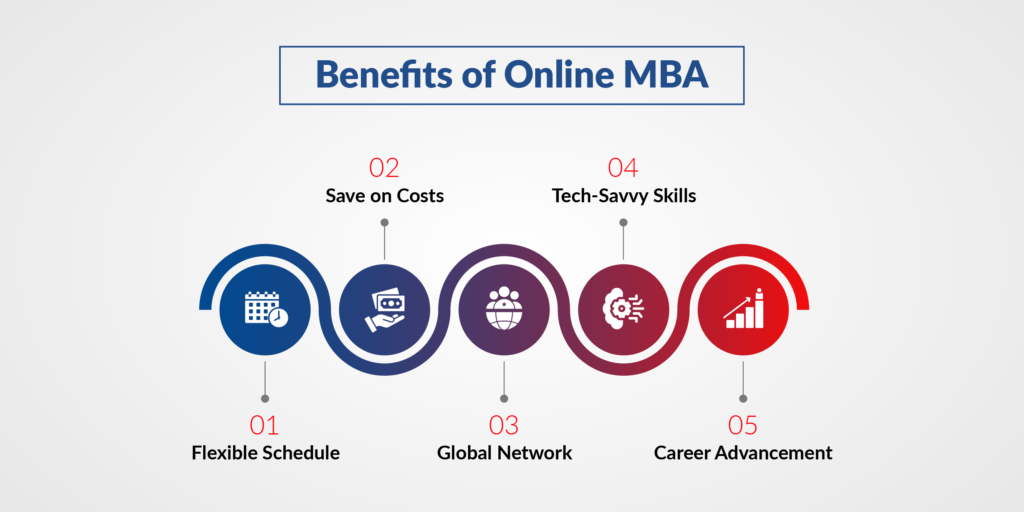
*HikeEducation
Career Advancement Opportunities: Promotions and Leadership Roles
For many professionals, the primary motivation for pursuing an MBA is career advancement. An online MBA equips you with the knowledge and credentials needed to step into leadership roles, earn promotions, or transition into high-impact positions. The curriculum is designed to sharpen strategic thinking, decision-making, and problem-solving abilities—all critical for managing teams and driving business success.
Employers value MBA graduates for their ability to view challenges from a holistic perspective. For instance, a marketing manager who earns an online MBA may be promoted to a director-level position, thanks to their enhanced understanding of finance, operations, and organizational strategy. Many alumni also credit their online MBAs with helping them achieve significant salary increases, as companies often reward employees with advanced degrees.
Example: Take Jacob, a software engineer who wanted to pivot into a product management role. His online MBA not only gave him the tools to understand market strategies and consumer behavior but also positioned him as a strong candidate for leadership opportunities at his company.
Skill Enhancement: Leadership, Management, and Industry-Specific Skills
The skill set developed during an online MBA program goes far beyond theory. Courses are designed to enhance practical competencies in leadership, management, communication, and industry-specific knowledge. For professionals looking to refine their ability to lead teams, manage projects, or drive innovation, these programs provide the foundation needed to excel.
Leadership training is often a core focus, with modules that teach you how to inspire teams, resolve conflicts, and implement effective strategies. Additionally, students gain exposure to advanced analytical tools, financial modeling, and market research methods that are directly applicable to real-world business scenarios.
Many programs also offer specialization tracks, allowing you to tailor your MBA to your career goals. Whether your interests lie in healthcare management, technology, or entrepreneurship, an online MBA ensures you develop the expertise needed to thrive in your chosen field.
Example: Emma, an HR professional, used her online MBA to specialize in organizational behavior and leadership. The skills she gained not only improved her team’s performance but also earned her recognition as a thought leader in her company.
Networking Opportunities: Virtual Meetups and Global Alumni Associations
Networking remains one of the most valuable aspects of an MBA program, and online MBAs are no exception. While the interactions may happen virtually, the opportunities to connect with peers, professors, and alumni are just as impactful. Programs often include virtual meetups, collaborative group projects, and industry-specific events where students can build relationships with like-minded professionals.
Alumni associations also play a significant role in creating long-term networking opportunities. Many programs boast extensive networks of graduates working in top companies across industries. This network can open doors to mentorship, job referrals, and business partnerships.
Example: During her online MBA, Lisa attended virtual networking sessions that introduced her to alumni working in the fintech industry. These connections not only helped her land a job at a leading startup but also provided ongoing mentorship as she transitioned into her new role.
Global Exposure: Diversity in Peer Groups and Faculty Expertise
One of the unique advantages of an online MBA is the diversity of its cohorts. Unlike traditional programs, where participants are often localized, online MBAs attract students from all over the world. This global mix provides exposure to a variety of perspectives, business practices, and cultural insights that can be invaluable in today’s interconnected economy.
Faculty members in online MBA programs often bring a wealth of international experience, offering insights into global markets, emerging trends, and cross-border business strategies. This combination of diverse peers and expert faculty creates a rich learning environment that fosters innovative thinking and adaptability.
Example: Rahul, an operations manager from India, shared projects with peers from Europe, Africa, and the US during his online MBA in supply chain management. This exposure helped him understand global supply chain challenges and solutions, which he later applied to optimize his company’s processes.
4. Universities Offering the Best Online MBA Programs
Selecting the right university for your online MBA is a pivotal decision that can shape your professional future. The best online MBA programs are offered by a wide range of institutions, from globally renowned universities to well-established Indian educational institutions. Each has unique advantages, including varying costs, curricula, and learning experiences. In this section, we’ll explore the top global universities offering the best online MBA programs, highlight the best online MBA colleges in India, and present a detailed comparison to help you make an informed choice.
Top Global Universities
Global universities offering the best online MBA programs combine academic excellence, flexibility, and cutting-edge technology. Based on The Princeton Review online MBA rankings, these programs are highly regarded for their rigorous coursework, expert faculty, and networking opportunities. Here’s a closer look at some of the best options:
1. Indiana University – Kelley School of Business
- Overview: Kelley Direct Online MBA is consistently ranked among the top online MBA programs worldwide. Known for its innovative approach, the program allows students to tailor their education to their career goals.
- Key Features:
-
- Dual-degree opportunities that let you earn additional credentials.
- Strong networking opportunities.
- Faculty same as those teaching the full-time MBA course.
-
- Who It’s For: Professionals seeking a customizable and globally recognized MBA.
2. University of North Carolina – Kenan-Flagler Business School
- Overview: This program emphasizes leadership development and global business acumen. Students benefit from a blend of academic rigor and practical application.
- Key Features:
-
- Industry-focused strong core curriculum.
- Exceptional faculty.
- Peer support at its best.
-
- Who It’s For: Mid-level managers and aspiring global leaders.
3. University of Michigan—Ann Arbor - Stephen M. Ross School of Business
- Overview: With an emphasis on excellence, University of Michigan’s online MBA equips students with the skills to lead in tech-driven business environments.
- Key Features:
- Outstanding and responsive faculty.
- Courses designed to address the challenges of the digital age.
- Access to a global alumni network for networking and mentorship.
- Who It’s For: Professionals in technology or those looking to transition into tech-focused roles.
Indian Universities
India has emerged as a hub for high-quality online MBA programs, offering affordable and flexible education options for online MBA programs in India that cater to the needs of diverse professionals. Many of these online MBA programs in India are offered by prestigious institutions with decades of experience in management education.

Here are a few amongst the best online MBA colleges in India:
1. IIM Mumbai – Executive MBA
- Overview: IIM Mumbai offers a highly reputed executive MBA program tailored for experienced professionals aiming to advance into senior leadership roles.
- Key Features:
-
- Focus on strategic management and advanced leadership skills.
- Live online classes supplemented by on-campus immersion sessions.
- A strong alumni network and mentorship opportunities.
-
- Who It’s For: Senior professionals looking to refine their leadership and strategic abilities.
2. Symbiosis School for Online and Digital Learning (SSODL)
- Overview: SSODL is a leader in online MBA education in India, offering a wide range of MBA specializations tailored to industry needs.
- Key Features:
-
- Specializations in finance, marketing, HR, and more.
- Affordable fees with flexible learning schedules.
- Strong academic foundation and a legacy of excellence in management education.
-
- Who It’s For: Professionals seeking an affordable, specialization-rich online MBA.
3. Manipal University Jaipur
- Overview: This university offers a robust online MBA program focused on providing industry-relevant knowledge and skills.
- Key Features:
-
- Industry-oriented curriculum designed to address current market demands.
- Placement support and career counseling for students.
- Interactive online sessions and real-world case studies.
-
- Who It’s For: Early-career professionals and mid-level managers.
4. Manipal Academy of Higher Education (MAHE)
- Overview: MAHE’s online MBA caters to professionals looking to specialize in fields such as healthcare management, IT, and analytics.
- Key Features:
- Global affiliations and partnerships for added credibility.
- Focus on emerging business trends and technological advancements.
- A wide variety of electives for customized learning.
- Who It’s For: Professionals aiming to upskill in specialized industries.
5. Dr. DY Patil Vidyapeeth, Pune
- Overview: This institution provides a strong online MBA program with a focus on applied learning and flexibility.
- Key Features:
- Live virtual sessions and recorded lectures for convenience.
- Case-based learning to simulate real-world business scenarios.
- Support for working professionals balancing multiple responsibilities.
- Who It’s For: Professionals looking for practical, application-based learning.
6. Bharati Vidyapeeth Deemed University, Pune
- Overview: A reputed institution offering a variety of MBA specializations through its online program.
- Key Features:
- Affordable fees with a focus on practical knowledge.
- Courses designed to meet the needs of various industries.
- Flexible schedules for working professionals.
- Who It’s For: Mid-career professionals and those transitioning into management roles.
Comparison Chart: Global Programs and Online MBA in India
| University | Reputation | Cost | Curriculum | Unique Features |
|---|---|---|---|---|
| Kelley School of Business (Indiana) | Top-tier global ranking | High USD 94,944 | Flexible, customizable | Dual-degree options, corporate partnerships |
| Kenan-Flagler (UNC) | Renowned global program | High USD 125,589 | Leadership-focused | Exceptional faculty |
| Symbiosis School for Online Learning | Established institution | Moderate INR 3,00,000 | Specialization-rich | Affordable, flexible schedules |
| Manipal University Jaipur | Nationally recognized | Low INR 1,75,000 | Industry-oriented | Placement support, strong industry focus |
| Dr. DY Patil Vidyapeeth, Pune | Reputable online education | Low INR 1,89,400 | Practical learning | Practical learning |
| Chandigarh University | Growing national reputation | Low INR 1,58,000 (After availing the Early Bird Discount) | Experiential learning | WES-approved, innovation-focused curriculum |
5. How to Choose An Online MBA Program
Selecting the right online MBA program is a critical step in your educational journey and professional growth. The program you choose should align with your career goals, budget, and personal learning preferences. Here’s a detailed guide to help you evaluate the key factors when choosing the best online MBA program for you.
1. Accreditation: Importance and Key Accrediting Bodies
Accreditation is the foundation of any reputable MBA program. It ensures the program meets high academic standards and is recognized by employers and institutions worldwide. Without proper accreditation, your degree might lack credibility, limiting its impact on your career.
Why Accreditation Matters:
- Quality Assurance: Accredited online MBA programs undergo rigorous evaluations to ensure quality.
- Global Recognition: Employers and other institutions respect degrees from accredited online MBA programs.
- Eligibility for Financial Aid: Many scholarships and funding options are available only for accredited online MBA programs.
Key Accrediting Bodies:
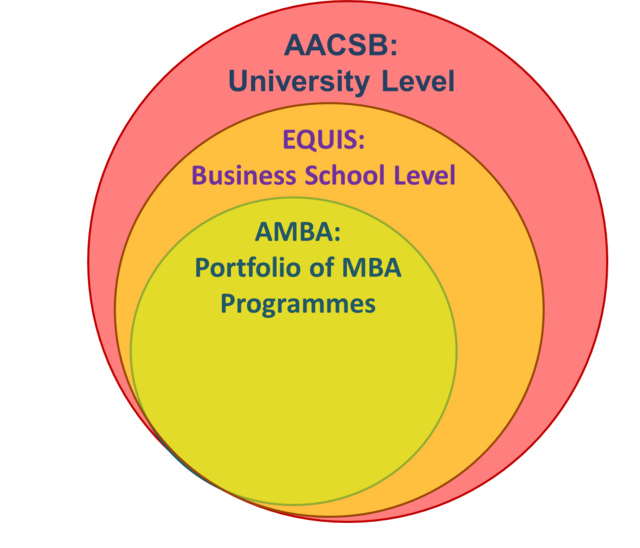
*wikimedia
- AACSB (Association to Advance Collegiate Schools of Business): Known as the gold standard, AACSB accreditation signifies a program’s focus on innovation, impact, and academic rigor.
- EQUIS (European Quality Improvement System): Focuses on international business education and global relevance.
- AMBA (Association of MBAs): Highlights MBA-specific excellence and is widely recognized in Europe and Asia.
How to Check
Ensure the program’s accreditation status by visiting the official websites of these accrediting bodies or checking the institution’s website.
2. Curriculum: Core Subjects, Electives, and Specializations
The curriculum is the heart of any MBA program. A well-structured curriculum equips you with essential business knowledge while allowing you to specialize in areas relevant to your career goals.
What to Look For
- Core Subjects: Key areas such as finance, marketing, operations, strategy, and organizational behavior should be covered comprehensively.
- Electives: Look for flexibility in choosing electives based on your interests, such as data analytics, sustainability, or entrepreneurship.
- Specializations: Programs that offer tracks in niche fields like healthcare management, IT, or global business can provide an edge in specific industries.
Example
A program offering electives like “Digital Marketing Strategies” or “Artificial Intelligence in Business” could appeal to professionals aiming to thrive in tech-driven industries.
Capstone Projects and Internships
Practical components such as capstone projects, simulations, or internships are crucial for applying theoretical knowledge in real-world settings. These experiences enhance your learning and make your résumé stand out.
3. Faculty: Evaluate Expertise and Industry Relevance
The quality of faculty plays a significant role in your learning experience. Experienced professors with a mix of academic and industry expertise ensure that you gain both theoretical knowledge and practical insights.
What to Evaluate:
- Academic Credentials: Professors with advanced degrees from reputable institutions bring depth to the program.
- Industry Experience: Faculty with real-world business experience can provide practical applications and insights.
- Accessibility: Online programs should allow opportunities for direct interaction with faculty through virtual office hours, live sessions, or discussion forums.
Research Faculty Profiles:
Most universities provide detailed faculty profiles on their websites. Look for professors actively engaged in research, consulting, or industry projects.
4. Reputation: Online MBA Rankings, Reviews, and Alumni Success Stories
The reputation of the program and the institution offering it significantly impacts the value of your degree. A well-regarded program can open doors to prestigious employers, professional networks, and higher salaries.
Factors to Consider:
- Online MBA Rankings: Use reliable sources like The Princeton Review, Financial Times, or QS World University Rankings to assess a program’s standing.
- Reviews: Online forums, alumni testimonials, and independent reviews provide insights into the program’s strengths and weaknesses.
- Alumni Success Stories: Investigate where alumni are working and their career trajectories after graduation.
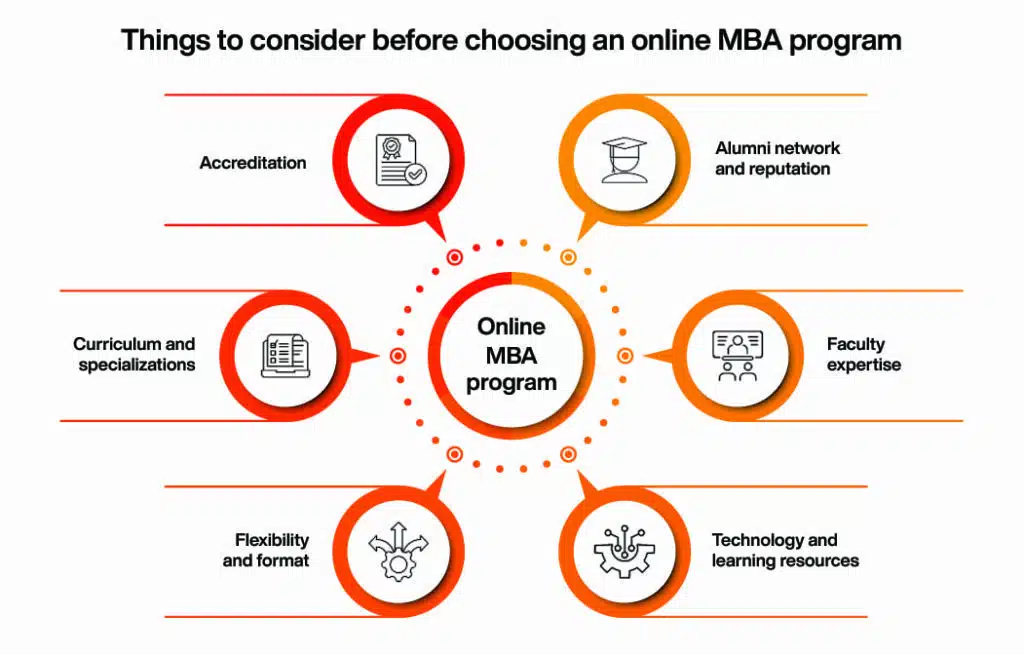
Example:
If a program boasts alumni in leadership roles at Fortune 500 companies or successful entrepreneurs, it indicates the program’s credibility and effectiveness.
5. Cost and ROI: Tuition Fees vs. Career Benefits
Cost is a significant factor in choosing an online MBA program, but it’s essential to weigh the investment against the potential return.
Evaluate Costs:
- Tuition Fees: Compare the costs of various programs and consider if scholarships or financial aid are available.
- Additional Expenses: Factor in costs for technology, textbooks, and exam fees.
Assess ROI:
- Salary Increase: Research the average salary hike for graduates of the program.
- Career Opportunities: Evaluate the career support services, including placement assistance and industry connections.
- Networking Opportunities: Alumni networks and industry meetups add long-term value.
Tip:
Programs with slightly higher tuition may still offer a better ROI if they lead to substantial career growth.
6. Technology and Platform: User Experience and Support Services
Since online MBAs rely entirely on digital platforms, the quality of the technology used can make or break your experience.
Evaluate the Platform:
- Ease of Use: Platforms should be intuitive and easy to navigate.
- Interactive Features: Look for tools like live video conferencing, breakout rooms, discussion boards, and collaborative project spaces.
- Mobile Access: Check if the program provides mobile-friendly access for learning on the go.
Support Services:
- Technical Support: Reliable, 24/7 technical assistance is vital for smooth operations.
- Learning Resources: Access to recorded lectures, e-libraries, and study materials enhances the learning experience.
- Student Support: Programs with dedicated advisors or mentors ensure personalized guidance.
Example:
Programs using advanced tools like AI-driven analytics to track student progress or virtual reality for leadership training provide cutting-edge learning experiences.
6. Admission Process
The admission process for online MBA programs is competitive and requires careful preparation. Universities evaluate candidates based on their academic credentials, work experience, entrance exam scores, and personal qualities. This section outlines the key components of the admission process and provides tips to help you stand out.
Eligibility Criteria: Education, Work Experience, and Other Prerequisites
Before applying, ensure you meet the basic eligibility criteria, which typically include:
- Educational Qualifications:
- A bachelor’s degree from a recognized institution is usually required.
- Some programs may require a minimum GPA or specific undergraduate coursework.
- Work Experience:
- Many online MBA programs prefer candidates with professional experience.
- Executive MBA programs often require 5–10 years of experience in managerial roles.
- Language Proficiency:
- International applicants may need to demonstrate English proficiency through tests like TOEFL or IELTS.
- Other Requirements:
- Some programs may require prerequisite courses in business fundamentals, such as accounting or economics.
Entrance Exams: GMAT, GRE, or Waiver Policies
Standardized tests like the GMAT (Graduate Management Admission Test) and GRE (Graduate Record Examination) are common admission requirements for many online MBA programs. These exams evaluate your quantitative, verbal, and analytical skills.
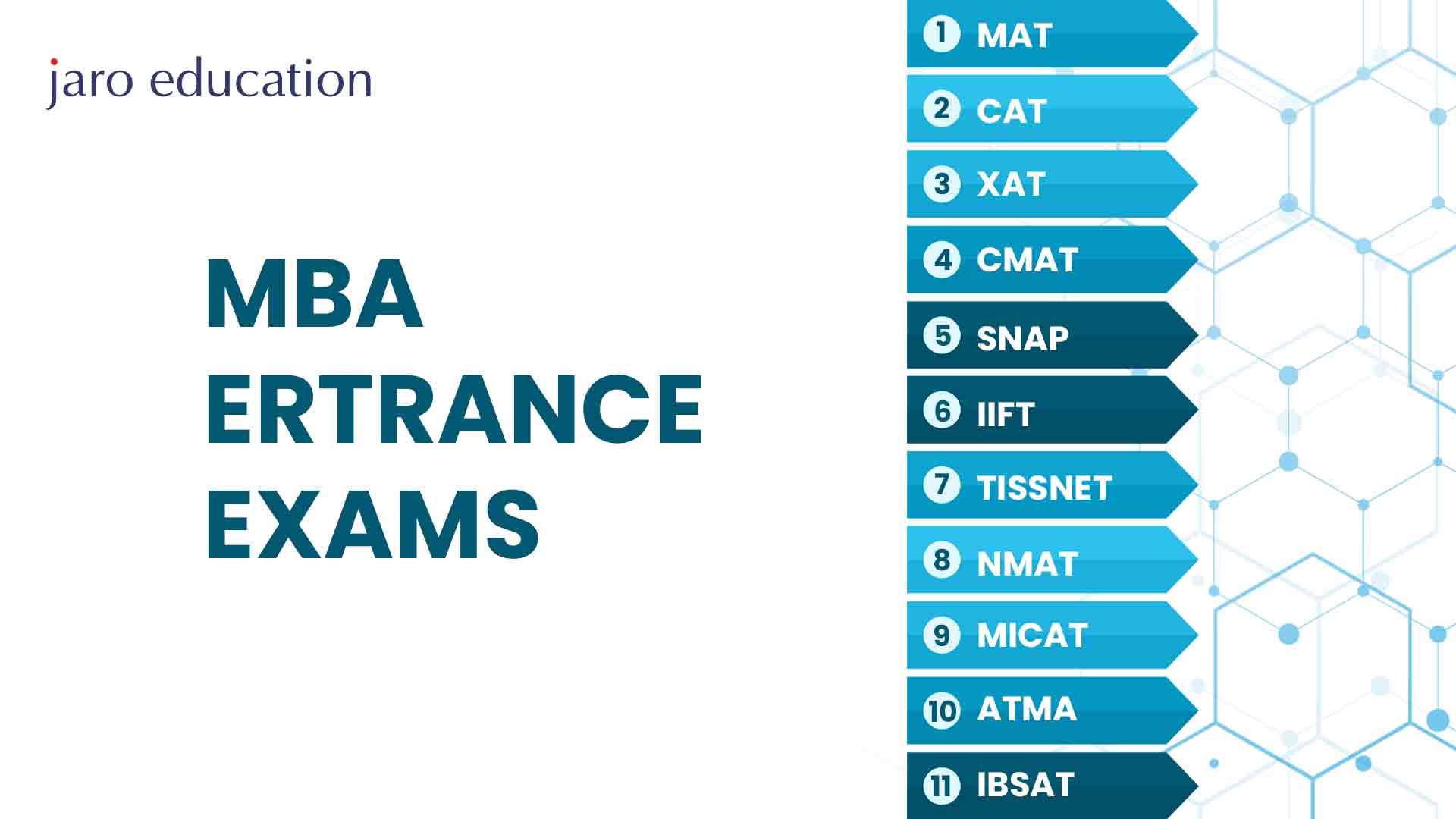
GMAT or GRE Requirements:
- GMAT: A strong GMAT score can demonstrate your analytical and problem-solving abilities.
- GRE: Some programs accept GRE scores as an alternative to the GMAT.
Waiver Policies:
-
- Extensive work experience.
- High undergraduate GPA.
- Professional certifications like CFA or CPA.
Application Tips: Writing an Effective SOP, Obtaining Strong Recommendations, and Acing Interviews
Your application is your opportunity to showcase your strengths, goals, and fit for the program. Here’s how to maximize your chances of success:
1. Statement of Purpose (SOP):
An SOP is a critical part of your application, offering insight into your motivations and career aspirations. Follow these tips to craft a compelling SOP:
- Be Specific: Clearly outline your career goals and how the program aligns with them.
- Highlight Achievements: Showcase your accomplishments, especially those that demonstrate leadership or problem-solving skills.
- Personalize: Tailor your SOP to the specific program by mentioning courses, faculty, or unique features that attracted you.
2. Recommendations:
-
- Professional References: Select current or former managers who can discuss your work performance.
- Academic References: If you’ve recently graduated, professors familiar with your academic abilities can provide valuable insights.
3. Interviews:
Many programs require interviews as part of the selection process. This is your chance to make a strong impression.
- Be Prepared: Research the program thoroughly and be ready to discuss how it aligns with your career goals.
- Practice: Rehearse common interview questions, such as your leadership experiences, strengths, and challenges.
- Be Authentic: Showcase your personality and enthusiasm for the program.
Navigating the Admission Process
The admission process for online MBA programs may seem daunting, but with careful preparation, you can present yourself as a strong candidate. Focus on meeting eligibility criteria, preparing for entrance exams, and crafting a standout application. With the right approach, you’ll be well on your way to securing a spot in your desired program.
7. Online MBA Specializations
One of the biggest advantages of an online MBA is the opportunity to specialize in a field that aligns with your career goals. Online MBA specializations allow you to gain in-depth knowledge and skills in specific industries or functions, making you more marketable in today’s competitive job market. This section explores popular online MBA specializations and offers guidance on how to choose an online MBA program which is right for your career aspirations.
Popular Specializations
Online MBA programs offer a wide range of specializations to cater to diverse professional needs. Here are some of the most popular options:
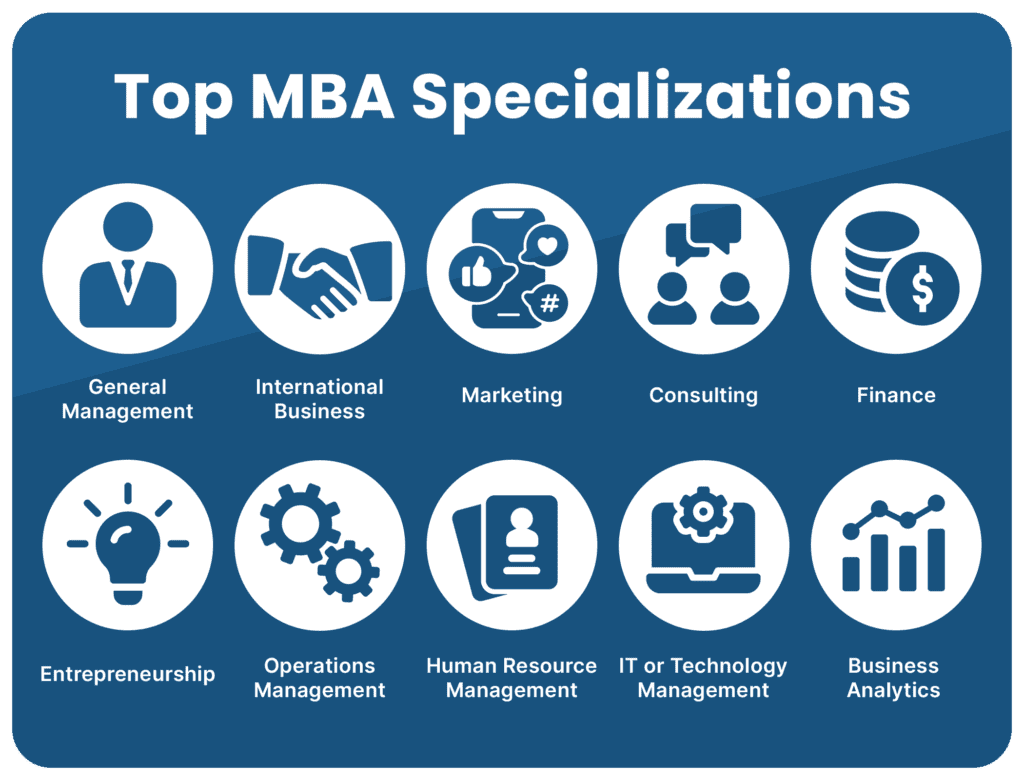
*CollegeAdvisor
1. Online MBA in Finance
- Focus: Financial management, investment strategies, corporate finance, and risk analysis.
- Ideal For: Professionals aiming for careers in investment banking, corporate finance, or financial consulting.
- Example Courses: Financial Markets, Mergers & Acquisitions, and Portfolio Management.
2. Online MBA in Marketing
- Focus: Branding, consumer behavior, digital marketing, and market research.
- Ideal For: Those seeking roles in advertising, product management, or marketing analytics.
- Example Courses: Digital Marketing Strategies, Brand Management, and Market Analytics.
3. Online MBA in Business Analytics
- Focus: Business intelligence, big data, and predictive analytics.
- Ideal For: Professionals interested in data-driven decision-making or roles like business analyst or data scientist.
- Example Courses: Data Visualization, Machine Learning, and Business Analytics.
4. Online MBA in Human Resources (HR)
- Focus: Talent management, organizational behavior, and labor laws.
- Ideal For: Aspiring HR managers or professionals seeking to specialize in people management.
- Example Courses: Strategic HR Management, Compensation & Benefits, and Employee Relations.
5. Online MBA in Entrepreneurship
- Focus: Startup development, innovation, and venture capital.
- Ideal For: Entrepreneurs and professionals looking to launch or manage their own businesses.
- Example Courses: Business Plan Development, Innovation Management, and Venture Capital Financing.
6. Online MBA in Healthcare Management
- Focus: Healthcare systems, policies, and operational management in the medical field.
- Ideal For: Professionals in the healthcare industry aiming for leadership roles.
- Example Courses: Healthcare Economics, Patient Care Management, and Health Policy.
7. Online MBA in Technology Management
- Focus: IT strategy, emerging technologies, and cybersecurity.
- Ideal For: IT professionals looking to transition into managerial roles.
- Example Courses: IT Project Management, Cybersecurity Strategy, and Technology Innovation.
Choosing a Specialization
Selecting the right specialization is a critical decision that depends on your interests, career goals, and industry demand. Here are some tips to guide your choice:
1. Align with Career Aspirations
Identify your long-term career goals and choose a specialization that supports them. For instance, if you’re aiming for a leadership role in finance, an Online MBA in Finance will equip you with the necessary skills.
2. Research Industry Demand
Look at current trends and future growth areas in your industry. Online MBA specializations like Online MBA in Business Analytics and Online MBA in Technology Management are in high demand due to the increasing reliance on digital solutions.
3. Evaluate Program Offerings
Not all programs offer every specialization. Research the courses and faculty expertise for each program to ensure it aligns with your interests.
4. Consider Transferable Skills
Some specializations, like leadership or data analytics, provide skills that are valuable across multiple industries.
5. Seek Guidance
Reach out to alumni or mentors for advice on how specific specializations have impacted their careers.
Unlocking Your Potential with the Right Specialization
An online MBA specialization allows you to tailor your education to your career aspirations and market needs. By choosing a field that aligns with your interests and industry trends, you can position yourself as an expert in your chosen area and gain a competitive edge in the job market. Take the time to explore your options and make an informed choice that will help you achieve your professional goals.
8. Life During an Online MBA
An online MBA program offers flexibility, but it also demands commitment and efficient time management. Life during an online MBA can be both rewarding and challenging, as students juggle coursework, professional responsibilities, and personal obligations. Here’s what a typical week might look like, the tools you’ll use, and tips for balancing your studies while maximizing the networking opportunities a virtual environment provides.
Typical Weekly Schedule: Coursework, Assignments, and Virtual Discussions
- Live Classes:
- Duration: 1–3 hours per session.
- Typically scheduled during evenings or weekends to accommodate working professionals.
- Focused on lectures, case studies, and interactive discussions.
- Asynchronous Learning:
- Includes pre-recorded lectures, reading assignments, and discussion board participation.
- Allows students to learn at their own pace within set deadlines.
- Assignments and Projects:
- Weekly tasks such as essays, problem sets, or group projects.
- Group projects often involve coordinating with peers across different time zones.
- Quizzes and Exams:
- Some programs have weekly quizzes to reinforce learning, while others may schedule exams periodically.
- Peer Discussions:
- Virtual forums or study groups to discuss course material, share insights, and collaborate on assignments.
-
- Monday: Watch pre-recorded lectures and review reading material.
- Tuesday: Participate in a live class or discussion.
- Wednesday: Work on an individual assignment or quiz.
- Thursday: Join a group project meeting via video conference.
- Friday: Engage in online discussions or attend a virtual networking event.
- Weekend: Catch up on remaining coursework and prepare for the next week.
Tools and Platforms: LMS, Video Conferencing, Collaborative Tools
- Learning Management Systems (LMS):
- Platforms like Blackboard, Canvas, or Moodle are used to access lectures, assignments, grades, and communication tools.
- Video Conferencing:
- Tools like Zoom, Microsoft Teams, or Webex are standard for live classes, group discussions, and faculty meetings.
- Collaborative Tools:
- Platforms like Google Workspace, Slack, or Trello facilitate teamwork on group projects.
- Simulations and Virtual Labs:
- Advanced programs may include business simulations or virtual labs to provide hands-on learning experiences.
- E-Libraries:
- Access to digital libraries ensures students can research and reference material at any time.
Balancing Act: Managing Studies Alongside Work and Family
- Set a Schedule:
- Dedicate specific times for studying, attending classes, and completing assignments.
- Use tools like Google Calendar or productivity apps to manage your time effectively.
- Communicate with Employers and Family:
- Inform your employer and family about your MBA commitments to set expectations.
- Seek support from colleagues or family members when needed.
- Leverage Flexibility:
- Take advantage of asynchronous learning to fit studies into your schedule.
- Prioritize Self-Care:
- Maintain a healthy work-life-study balance by including breaks and relaxation in your routine.
Networking Virtually: Building Connections in a Digital Environment
- Virtual Events:
- Attend online workshops, webinars, and networking events hosted by your program.
- Discussion Boards:
- Engage actively in forums to exchange ideas and build rapport with classmates.
- Group Projects:
- Use collaborative assignments as a chance to develop relationships and learn from diverse perspectives.
- Alumni Networks:
- Join alumni groups on LinkedIn or other platforms to expand your professional network.
9. Challenges and How to Overcome Them
An online MBA comes with its share of challenges, from managing time effectively to overcoming technical issues. Here are some common obstacles and strategies to navigate them.
Common Challenges
- Time Management:
- Balancing coursework with work and family responsibilities can be overwhelming.
- Deadlines for assignments, group projects, and live classes require careful planning.
- Lack of In-Person Interaction:
- Online learning may feel isolating without face-to-face connections with peers and faculty.
- The absence of physical networking events can limit relationship-building opportunities.
- Technical Issues:
- Dependence on technology means any disruption, like internet outages or software glitches, can impact learning.
- Staying Motivated:
- The flexibility of online programs can lead to procrastination or a lack of focus.
Solutions
- Time Management Strategies:
- Create a Routine: Establish a consistent study schedule to maintain discipline.
- Prioritize Tasks: Use tools like the Eisenhower Matrix to focus on what’s urgent and important.
- Break Tasks Into Smaller Steps: This makes large assignments or projects more manageable.
- Combatting Isolation:
- Engage Actively: Participate in live discussions, forums, and group activities.
- Build a Support System: Connect regularly with classmates for peer support.
- Schedule Virtual Meetups: Set up informal video calls with peers to foster camaraderie.
- Dealing with Technical Issues:
- Have Backup Plans: Use mobile hotspots or alternative devices in case of connectivity problems.
- Seek Technical Support: Familiarize yourself with your program’s IT helpdesk for quick assistance.
- Staying Motivated:
- Set Goals: Break long-term goals into short-term milestones and celebrate achievements.
- Stay Connected: Regular interaction with peers and faculty can keep you engaged.
-
- Remind Yourself of the Big Picture: Keep your career aspirations in mind as a source of inspiration.
Overcoming Obstacles for Success
While an online MBA presents challenges, these can be overcome with the right strategies and mindset. Effective time management, proactive engagement, and leveraging available resources can help you navigate the program successfully. By addressing these obstacles head-on, you can make the most of your online MBA experience and achieve your professional goals.
10. Career Opportunities After an Online MBA
An online MBA is more than a degree—it’s a stepping stone to diverse career opportunities across industries and roles. Graduates of online MBA programs often find themselves equipped with the skills and networks necessary to thrive in competitive job markets. Let’s explore the industries that value MBA graduates, the roles and salaries they can expect, and how career support systems can accelerate professional growth.
Top Industries: Sectors with High Demand for MBA Graduates
Online MBA graduates are in demand across a wide range of industries. Here are some of the top sectors hiring MBA talent:
1. Technology
- Companies like Google, Amazon, and Microsoft frequently hire MBA graduates for roles in product management, business development, and operations.
- The tech sector values analytical skills, leadership abilities, and innovative thinking—qualities nurtured during an MBA program.
2. Finance
- Investment banks, asset management firms, and fintech companies seek MBA graduates for roles in financial analysis, corporate finance, and investment management.
- Employers include Goldman Sachs, JP Morgan, and PayPal.
3. Consulting
- Management consulting firms such as McKinsey, Boston Consulting Group, and Bain hire MBAs for their strategic thinking and problem-solving capabilities.
- Roles typically involve advising clients on business strategy, operations, and market entry.
4. Healthcare
With the rise of online Mba in healthcare management as a specialization, hospitals, pharmaceutical companies, and health tech startups are hiring MBAs for roles in operations, strategy, and policy development.
5. E-commerce and Retail
E-commerce giants like Amazon and Walmart hire MBAs for roles in supply chain management, logistics, and marketing.
6. Entrepreneurship
Many MBA graduates use their education to launch and scale their own businesses, leveraging the strategic and financial knowledge gained during their studies.
Roles and Salaries: Overview of Positions and Compensation Trends
An online MBA can open doors to a variety of high-impact roles. Here are some popular positions and their typical compensation ranges:
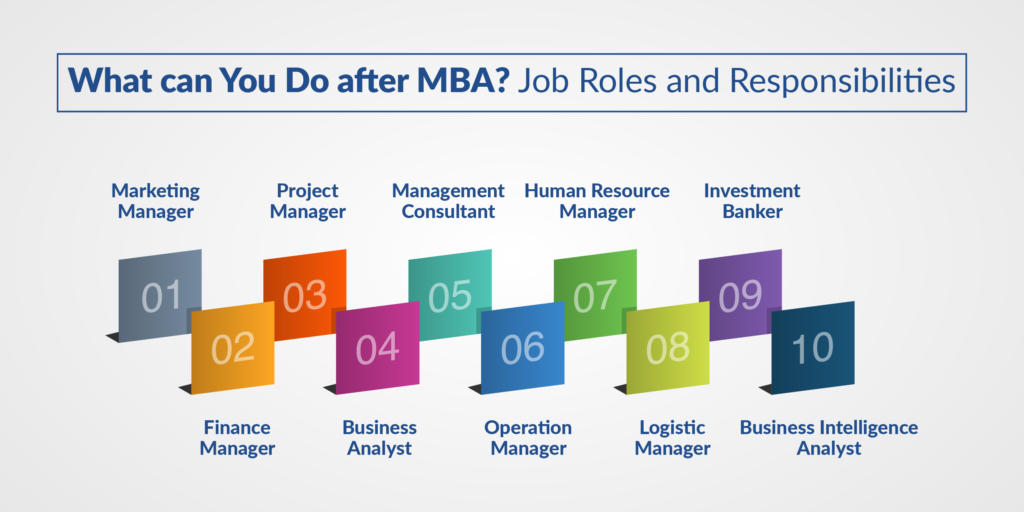
*HikeEducation
1. Product Manager
- Role: Overseeing the development and lifecycle of products.
- Average Salary: $115,000–$145,000 annually.
2. Financial Analyst
- Role: Analyzing financial data to support investment decisions.
- Average Salary: $85,000–$120,000 annually.
3. Management Consultant
- Role: Providing strategic advice to improve business performance.
- Average Salary: $120,000–$150,000 annually.
4. Marketing Manager
- Role: Developing and executing marketing strategies.
- Average Salary: $95,000–$130,000 annually.
5. Operations Manager
- Role: Optimizing business processes and resource allocation.
- Average Salary: $90,000–$125,000 annually.
6. Entrepreneur
- Role: Leading and managing new business ventures.
- Earnings: Vary significantly based on business success.
Support Systems: Career Services and Leveraging Alumni Networks
The journey to a successful career doesn’t end with earning your degree. Online MBA programs offer robust career support systems to help graduates achieve their professional goals.
1. Career Services
- Resume and Interview Prep: Many programs offer personalized coaching to enhance your job application materials and interview performance.
- Job Portals: Access to exclusive job boards with opportunities tailored to MBA graduates.
- Placement Assistance: Programs often maintain relationships with top employers to facilitate recruitment.
2. Alumni Networks
- Alumni networks are invaluable for career growth, providing mentorship, job referrals, and insights into industries.
- Many programs host virtual and in-person alumni events to strengthen professional connections.
3. Industry Events
Online MBAs often include opportunities to attend virtual conferences, webinars, and networking events with industry leaders.
A World of Opportunities
An online MBA equips you with the skills, knowledge, and connections needed to succeed in a wide array of industries and roles. Whether you’re aiming for a leadership position, a career transition, or entrepreneurial success, the degree opens doors to high-paying roles and exciting opportunities. By leveraging career services and alumni networks, you can maximize the return on your investment and achieve your professional aspirations.
11. How Jaro Education Can Help
Navigating the journey of selecting and enrolling in an online MBA program can be overwhelming. From identifying the right program to securing admission, Jaro Education serves as a trusted partner for professionals seeking career advancement through education. Let’s delve into how Jaro Education’s comprehensive services, exclusive partnerships, and unique offerings can simplify your MBA journey.
Overview of Services: Guidance in Choosing and Applying to Top Programs
Jaro Education specializes in helping professionals make informed decisions about their education. Its services include:
1. Program Selection
- Jaro provides personalized counseling to help you identify programs that align with your career goals, learning preferences, and budget.
- With access to a diverse portfolio of programs, you can choose from options tailored to your interests.
2. Application Support
- Assistance with crafting compelling statements of purpose, gathering strong recommendations, and completing application forms ensures you present a strong candidacy.
- Guidance on meeting eligibility requirements and understanding admission processes.
3. Career Planning
Expert advisors offer insights into how different programs can impact your career trajectory, helping you plan for long-term success.
Exclusive Partnerships: Collaborations with Globally Recognized Universities
One of Jaro Education’s standout features is its exclusive partnerships with top universities such as IIM Mumbai, providing access to high-quality online MBA programs. These collaborations ensure that students receive globally recognized degrees and benefit from the expertise of renowned institutions.
Featured Partnerships:
- Leading universities offering specialized MBA programs across fields like technology, finance, and healthcare.
- Programs designed to meet global standards with accreditations from AACSB, EQUIS, and AMBA.
Global Edge:
- Access to world-class faculty and a diverse peer group enhances the learning experience.
- Opportunities for global networking with alumni and industry leaders.
Support Features: Admissions Assistance, Financial Planning, and Career Services
Jaro Education goes beyond program selection by offering end-to-end support:
1. Admissions Assistance
- Dedicated counselors guide you through the application process, from filling forms to preparing for interviews.
- Insight into program-specific requirements and tips for excelling in competitive admissions.
2. Financial Planning
- Guidance on tuition fees, scholarships, and installment plans helps you manage the financial aspect of your education.
- Assistance with securing education loans or employer sponsorships.
3. Career Services
- Personalized coaching for resume building, and job recommendations.
- Career enhancement sessions.
Jaro Education’s unique features set it apart from other educational consultants:
1. Industry Connections
- Collaboration with leading organizations ensures students gain exposure to real-world challenges.
- Networking opportunities with industry professionals through webinars, guest lectures, and workshops.
2. Flexible Learning Options
- Online MBA programs designed for working professionals with asynchronous and hybrid learning models.
- Options to choose specializations that align with market demands and emerging trends.
3. Dedicated Support
- Round-the-clock student support ensures you have help at every step of your educational journey.
- Regular progress tracking and personalized feedback keep you on track.
Your Trusted Partner in Education
Jaro Education simplifies the complexities of pursuing an online MBA by providing personalized guidance, exclusive access to top programs, and end-to-end support. With its expertise in admissions, financial planning, and career services, Jaro ensures that you can focus on what matters most—achieving your professional goals. Whether you’re looking to advance in your current field or explore new opportunities, Jaro Education is your trusted partner for success.
12. Final Thoughts
The professional landscape is rapidly evolving, and an online MBA equips you with the skills, knowledge, and connections to thrive in this dynamic environment. Whether you’re looking to climb the corporate ladder, transition to a new industry, or launch your own business, an online MBA offers unparalleled flexibility and access to global opportunities.
This degree is more than a qualification—it’s an investment in your future. By choosing a program that aligns with your career goals and leveraging the resources available, you can achieve personal growth and professional success. From cutting-edge curricula to diverse peer groups and global networking opportunities, an online MBA prepares you to face real-world challenges with confidence.
Now is the time to take actionable steps toward your aspirations. Explore your options, research programs, and set your career trajectory on an upward path. With the right tools and determination, the possibilities are limitless.
Your journey to success starts with Jaro Education. With a proven track record in guiding professionals to the right online MBA programs, Jaro Education offers personalized counseling, exclusive access to top global universities, and comprehensive support throughout the admissions process.
Discover programs that align with your career goals by exploring Jaro Education’s detailed brochures and related blogs. Learn about specializations, industry trends, and career opportunities to make an informed decision. Ready to take the next step? Schedule a free consultation with Jaro Education’s experts and get personalized advice tailored to your aspirations.
Visit Jaro Education’s website to explore program offerings, download brochures, and access valuable resources. Unlock your potential with Jaro Education—your partner in achieving MBA success!
Frequently Asked Questions
An online MBA often raises several questions among prospective students, especially when comparing it to traditional MBA programs. Below are answers to some of the most common queries to help you make an informed decision.
Yes, online MBAs are highly valued by employers, especially when obtained from accredited and reputable institutions. Over the years, perceptions of online education have evolved significantly, with many employers recognizing that the curriculum and learning outcomes of online programs are comparable to traditional MBAs.
Why Employers Value Online MBAs:
- Skill Development: Graduates possess the same business acumen, leadership skills, and technical knowledge as traditional MBA holders.
- Work-Study Balance: Employers appreciate the ability to manage education alongside professional responsibilities, which demonstrates strong time management and self-discipline.
- Global Perspective: Many online MBAs feature diverse cohorts, offering graduates exposure to international business practices.
Tip: Highlight your program’s accreditation, rankings, and achievements in your résumé to reinforce the credibility of your degree.
Networking is a cornerstone of any MBA experience, and online programs have developed innovative ways to foster meaningful connections between students, faculty, and alumni.
Key Networking Opportunities:
-
- Virtual Events: Many programs host online workshops, webinars, and guest lectures featuring industry leaders.
- Discussion Boards and Forums: Interactive platforms allow students to exchange ideas, share resources, and build relationships.
- Group Projects: Collaborative assignments encourage teamwork and help students form professional bonds.
- Alumni Networks: Online programs often provide access to alumni directories and virtual meetups to expand your professional connections.
Tips for Successful Networking Online:
-
- Be proactive in participating in discussions and events.
- Use LinkedIn to connect with peers, professors, and alumni.
- Attend virtual career fairs to interact with recruiters.
Absolutely. An online MBA can serve as a powerful tool for transitioning to a new industry or role. The program equips you with a broad set of business skills and industry-specific knowledge that can open doors to new opportunities.
Steps to Transitioning Industries:
- Specialize Strategically: Choose a specialization aligned with your target industry, such as data analytics for tech or finance for banking.
- Leverage Career Services: Many programs offer resources like résumé reviews, job placement assistance, and industry connections.
- Network Intentionally: Engage with alumni or professionals in your desired field to gain insights and referrals.
- Highlight Transferable Skills: Emphasize leadership, problem-solving, and project management skills that apply across industries.
Example: A marketing professional may pivot to the tech industry by specializing in online MBA in digital marketing and leveraging connections made during their MBA.
Online MBAs are designed with flexibility in mind, making them an excellent choice for working professionals. Programs typically offer:
-
- Asynchronous Learning: Access course materials and recorded lectures at your convenience.
- Customized Schedules: Many programs allow you to choose between part-time, full-time, or accelerated tracks.
- Extended Completion Periods: Some programs give you up to 5–7 years to complete your degree.
Costs for online MBA programs vary widely based on factors like the institution’s reputation, program duration, and location. While tuition for prestigious programs may reach $70,000 or more, many cost-effective options are available, particularly from institutions in India or through regional programs.
Additional Costs to Consider:
-
- Technology fees for accessing platforms.
- Learning materials, such as e-books or software subscriptions.
- Optional campus residencies or networking events.
Tip: Research scholarships, employer sponsorships, or payment plans to reduce financial burden.
Online MBA programs focus heavily on developing leadership and strategic thinking skills. Through case studies, capstone projects, and real-world applications, students learn to:
-
- Navigate complex business challenges.
- Manage and motivate diverse teams.
- Drive innovation and organizational change.
Example: A capstone project simulating a corporate acquisition could hone decision-making and negotiation skills, preparing you for senior management roles.
While many online MBA programs prefer applicants with work experience, some accept early-career professionals or recent graduates. If you lack experience, consider programs tailored for younger professionals or explore entry-level specializations.





